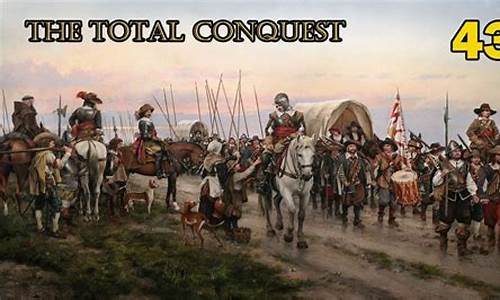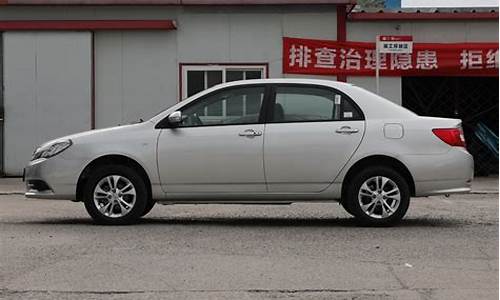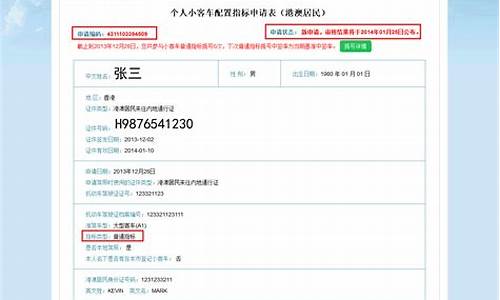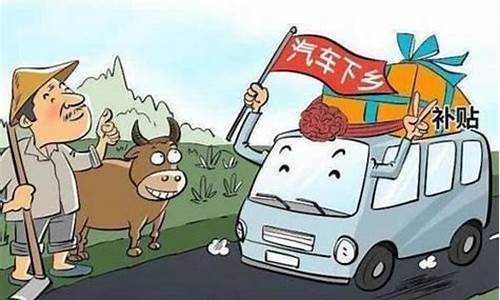ConQuEST是什么牌子_conquests
1.《权力的游戏》经典对白
2.周瑜(英文)
3.文明3中 怎么样载入你自己做好的地图
4.文明的系列作品
5.演讲比赛可用的英语故事
6.急求拿破仑的英文简介?
7.lol雷恩加尔说的话英文

微软百科非常详尽的介绍:
Napoleon I
I INTRODUCTION
Napoleon I (1769-1821), emperor of the French, who consolidated and institutionalized many reforms of the French Revolution. One of the greatest military commanders of all time, he conquered the larger part of Europe and did much to modernize the nations he ruled.
Napoleon was born on August 15, 1769, in Ajaccio, Corsica, and was given the name Napoleone (in French his name became Napoleon Bonaparte). He was the second of eight children of Carlo (Charles) Buonaparte and Letizia Ramolino Buonaparte, both of the Corsican-Italian gentry. No Buonaparte had ever been a professional soldier. Carlo was a lawyer who had fought for Corsican independence, but after the French occupied the island in 1768, he served as a prosecutor and judge and entered the French aristocracy as a count. Through his father’s influence, Napoleon was educated at the expense of King Louis XVI, at Brienne and the ?cole Militaire, in Paris. Napoleon graduated in 1785, at the age of 16, and joined the artillery as a second lieutenant.
After the Revolution began, he became a lieutenant colonel (1791) in the Corsican National Guard. In 1793, however, Corsica declared independence, and Bonaparte, a French patriot and a Republican, fled to France with his family. He was assigned, as a captain, to an army besieging Toulon, a nal base that, aided by a British fleet, was in revolt against the republic. Replacing a wounded artillery general, he seized ground where his guns could drive the British fleet from the harbor, and Toulon fell. As a result Bonaparte was promoted to brigadier general at the age of 24. In 1795 he sed the revolutionary by dispersing an insurgent mob in Paris. In 1796 he married Joséphine de Beauharnais, the widow of an aristocrat guillotined in the Revolution and the mother of two children.
II EARLY CAMPAIGNS
Also in 1796, Bonaparte was made commander of the French army in Italy. He defeated four Austrian generals in succession, each with superior numbers, and forced Austria and its allies to make peace. The Treaty of Campo Formio provided that France keep most of its conquests. In northern Italy he founded the Cisalpine (Italian) Republic (later known as the kingdom of Italy) and strengthened his position in France by sending millions of francs worth of treasure to the . In 1798, to strike at British trade with the East, he led an expedition to Ottoman-ruled Egypt, which he conquered. His fleet, however, was destroyed by the British admiral Horatio Nelson, leing him stranded. Undaunted, he reformed the Egyptian and law, abolishing serfdom and feudalism and guaranteeing basic rights. The French scholars he had brought with him began the scientific study of ancient Egyptian history. In 1799 he failed to capture Syria, but he won a smashing victory over the Ottomans at Abū Qīr (Abukir). France, meanwhile, faced a new coalition; Austria, Russia, and lesser powers had allied with Britain.
III NAPOLEONIC RULE IN FRANCE
Bonaparte, no modest soul, decided to lee his army and return to se France. In Paris, he joined a conspiracy against the . In the coup d’etat of November 9-10, 1799 (18-19 Brumaire), he and his colleagues seized power and established a new regime—the Consulate. Under its constitution, Bonaparte, as first consul, had almost dictatorial powers. The constitution was revised in 1802 to make Bonaparte consul for life and in 1804 to create him emperor. Each change received the overwhelming assent of the electorate. In 1800, he assured his power by crossing the Alps and defeating the Austrians at Marengo. He then negotiated a general European peace that established the Rhine River as the eastern border of France. He also concluded an agreement with the pope (the Concordat of 1801), which contributed to French domestic tranquillity by ending the quarrel with the Roman Catholic church that had arisen during the Revolution. In France the administration was reorganized, the court system was simplified, and all schools were put under centralized control. French law was standardized in the Code Napoléon, or civil code, and six other codes. They guaranteed the rights and liberties won in the Revolution, including equality before the law and freedom of religion.
IV WARS OF CONQUEST
In April 1803 Britain, provoked by Napoleon’s aggressive behior, resumed war with France on the seas; two years later Russia and Austria joined the British in a new coalition. Napoleon then abandoned plans to invade England and turned his armies against the Austro-Russian forces, defeating them at the Battle of Austerlitz on December 2, 1805. In 1806 he seized the kingdom of Naples and made his elder brother Joseph king, converted the Dutch Republic into the kingdom of Holland for his brother Louis, and established the Confederation of the Rhine (most of the German states) of which he was protector. Prussia then allied itself with Russia and attacked the confederation. Napoleon destroyed the Prussian army at Jena and Auerst?dt (1806) and the Russian army at Friedland. At Tilsit (July 1807), Napoleon made an ally of Tsar Alexander I and greatly reduced the size of Prussia (see Tilsit, Treaty of). He also added new states to the empire: the kingdom of Westphalia, under his brother Jerome, the duchy of Warsaw, and others.
Napoleon had meanwhile established the Continental System, a French-imposed blockade of Europe against British goods, designed to bankrupt what he called the “nation of shopkeepers.” In 1807 Napoleon seized Portugal. In 1808, he made his brother Joseph king of Spain, awarding Naples to his brother-in-law, Joachim Murat. Joseph’s arrival in Spain touched off a rebellion there, which became known as the Peninsular War. Napoleon eared briefly and scored victories, but after his departure the fighting continued for five years, with the British backing Spanish armies and guerrillas. The Peninsular War cost France 300,000 casualties and untold sums of money and contributed to the eventual weakening of the Napoleonic empire.
In 1809 Napoleon beat the Austrians again at Wagram, annexed the Illyrian Provinces (now part of Slovenia, Croatia, Bosnia and Herzegovina, and the Federal Republic of Yugoslia), and abolished the Papal States. He also divorced Joséphine, and in 1810 he married the Habsburg archduchess Marie Louise, daughter of the Austrian emperor. By thus linking his dynasty with the oldest ruling house in Europe, he hoped that his son, who was born in 1811, would be more readily accepted by established monarchs. In 1810 also, the empire reached its widest extension with the annexation of Bremen, Lübeck, and other parts of north Germany, together with the entire kingdom of Holland, following the forced abdication of Louis Bonaparte.
V NAPOLEONIC RULE IN EUROPE
In all the new kingdoms created by the emperor, the Code Napoléon was established as law. Feudalism and serfdom were abolished, and freedom of religion established (except in Spain). Each state was granted a constitution, providing for universal male suffrage and a parliament and containing a bill of rights. French-style administrative and judicial systems were required. Schools were put under centralized administration, and free public schools were envisioned. Higher education was opened to all who qualified, regardless of class or religion. Every state had an academy or institute for the promotion of the arts and sciences. Incomes were provided for eminent scholars, especially scientists. Constitutional remained only a promise, but progress and increased efficiency were widely realized. Not until after Napoleon’s fall did the common people of Europe, alienated from his s by war taxes and military conscription, fully reciate the benefits he had given them.
VI NAPOLEON’S DOWNFALL
In 1812 Napoleon, whose alliance with Alexander I had disintegrated, launched an invasion of Russia that ended in a disastrous retreat from Moscow. Thereafter all Europe united against him, and although he fought on, and brilliantly, the odds were impossible. In April 1814, his marshals refused to continue the struggle. After the allies had rejected his stepping down in for of his son, Napoleon abdicated unconditionally and was exiled to the Mediterranean island of Elba. Marie Louise and his son were put in the custody of her father, the emperor of Austria. Napoleon never saw either of them again. Napoleon himself, however, soon made a dramatic comeback. In March 1815, he escaped from Elba, reached France, and marched on Paris, winning over the troops sent to capture him. In Paris, he promulgated a new and more democratic constitution, and veterans of his old campaigns flocked to his support. Napoleon asked peace of the allies, but they outlawed him, and he decided to strike first. The result was a campaign into Belgium, which ended in defeat at the Battle of Waterloo on June 18, 1815. In Paris, crowds begged him to fight on, but the politicians withdrew their support. Napoleon fled to Rochefort, where he surrendered to the captain of the British battleship Bellerophon. He was then exiled to Saint Helena, a remote island in the south Atlantic Ocean, where he remained until his death on May 5, 1821.
VII THE NAPOLEONIC LEGEND
The cult of Napoleon as the “man of destiny” began during his lifetime. In fact, he had begun to cultivate it during his first Italian campaign by systematically publicizing his victories. As first consul and emperor, he had engaged the best writers and artists of France and Europe to glorify his deeds and had contributed to the cult himself by the elaborate ceremonies with which he celebrated his rule, picturing himself as the architect of France’s greatest glory. He maintained that he had preserved the achievements of the Revolution in France and offered their benefits to Europe. His goal, he said, was to found a European state—a “federation of free peoples.” Whatever the truth of this, he became the arch-hero of the French and a martyr to the world. In 1840 his remains were returned to Paris at the request of King Louis-Philippe and interred with great pomp and ceremony in the Invalides, where they still lie.
VIII EVALUATION
Napoleon’s influence is evident in France even today. Reminders of him dot Paris—the most obvious being the Arc de Triomphe, the centerpiece of the city, which was built to commemorate his victories. His spirit pervades the constitution of the Fifth Republic; the country’s basic law is still the Code Napoléon, and the administrative and judicial systems are essentially Napoleonic. A uniform state-regulated system of education persists. Napoleon’s radical reforms in all parts of Europe cultivated the ground for the revolutions of the 19th century. Today, the impact of the Code Napoléon is arent in the law of all European countries.
Napoleon was a driven man, never secure, never satisfied. “Power is my mistress,” he said. His life was work-centered; even his social activities had a purpose. He could bear amusements or vacations only briefly. His tastes were for coarse food, bad wine, cheap snuff. He could be charming—hypnotically so—for a purpose. He had intense loyalties—to his family and old associates. Nothing and no one, however, were allowed to interfere with his work.
Napoleon was sometimes a tyrant and always an authoritarian, but one who believed in ruling by mandate of the people, expressed in plebiscites. He was also a great enlightened monarch—a civil executive of enormous capacity who changed French institutions and tried to reform the institutions of Europe and give the Continent a common law. Few deny that he was a military genius. At Saint Helena, he said, “Waterloo will erase the memory of all my victories.” He was wrong; for better or worse, he is best remembered as a general, not for his enlightened , but the latter must be counted if he is justly to be called Napoleon the Great.
See French Revolution; Napoleonic Wars. See also separate articles on individual battles mentioned.
Contributed By:
Owen Connelly
Microsoft ? Encarta ? Encyclopedia 2003. ? 1993-2002 Microsoft Corporation. All rights reserved.
《权力的游戏》经典对白
莎士比亚十四行诗第十八首赏析:
1、对于船只来说,在海上迷失方向是极其危险的。但如果他们找到北极星并按它指引的方向前进,那他们就能得救。只要心中有爱,任何艰难险阻都无所畏惧。爱是恋人心中的“北极星”,有它的指引,爱之船就不会迷失方向。
2、海的汹涌澎湃和变幻莫测象征真爱道路上的艰难险阻:“it is a ever-fixed mark/that looks on tempests and is never shaken.”
它让意志薄弱的恋人迷失爱的方向,但海上的灯塔(ever-fixed mark)却是真爱的象征,只要有真爱在心中,任何困难都能克服。
扩展资料:
1609年,莎士比亚发表了《十四行诗》,这是他最后一部出版的非戏剧类著作。学者无法确认154首十四行诗每一首的完成时间,但是有证据表明莎士比亚在整个创作生涯中为一位私人读者创作这些十四行诗。
少数分析家认为出版的合集是根据莎士比亚有意设置的顺序。看起来他了两个相对的系列:一个是关于一位已婚皮肤黝黑女子的不可控制的欲望。
百度百科-莎士比亚十四行诗
周瑜(英文)
S1E5
龙妈怀孕的消息使劳勃与奈德发生分歧,由此引发劳勃和瑟曦的一段对话
R:sometimes I don't know what holds it together.
有时我不知道究竟是什么在维系国家。
C:Our marriage.
我们的婚姻。
R:Ah, so here we sit 17 years later, holding it all together.
所以十七年后,我们还坐在这儿,维系着国家的完整。
Don't you get tired?
你不觉得厌烦吗?
C:Every day.
没有一天不觉得。
R:How long can hate hold a thing together?
那这种憎恶还能让这个国家撑多久?
C:Well, 17 years is quite a long time.
十七年可算是很久了。
R:Yes, it is.
是的,的确。
C:Yes, it is.
的确。
What was she like?
她长什么样?
R:You've never asked about her, not once.
你可从没问到过她,一次都没有。
Why not?
为什么不问?
C:At first, just saying her name even in private felt like I was breathing life back into her.
起初,即使私底下提起她的名字,我都害怕她在你记忆中愈加鲜活。
I thought if I didn't talk about her, she'd just fade away for you.
我曾以为我不去提她,你就会渐渐淡忘。
When I realized that wasn't going to hen, I refused to ask out of spite.
后来我意识到你不可能忘记她,不再问起的原因就变成怨恨。
I didn't want to give you the satisfaction of thinking I cared enough to ask.
我不想让你自以为魅力十足,以为我多么在乎你的感情。
And eventually it became clear that my spite didn't mean anything to you.
到最后我终于清楚,我的怨恨在你眼里一文不值。
As far as I could tell, you actually enjoyed it.
就我看来,你反倒还很享受。
R:So why now?
那现在为什么又问?
C:What harm could Lyanna Stark's ghost do to either of us that we hen't done to each other a hundred times over?
我们对彼此的伤害还不够狠吗?相比之下,莱安娜·史塔克的幽灵又能怎样?
R:You want to know the horrible truth?
你想知道事实有多残酷吗?
I can't even remember what she looked like.
我甚至记不起她的样子来。
I only know she was the one thing I ever wanted...
我只知道她曾是我唯一的追求...
Someone took her away from me, and Seven Kingdoms couldn't fill the hole she left behind.
有人把她从我身边夺走,庞然如七国都弥补不了她留下的空白。
C:I felt something for you once, you know?
我曾对你有过感情,你知道么?
R:I know.
我知道。
C:Even after we lost our first boy.
即使在我们的长子夭折之后。
For quite a while, actually.
很长一段时间,我都怀揣着这份情意。
Was it ever possible for us? Was there ever a time,ever a moment?
我们之前曾经有过可能吗?有过这样的时候吗,即使是一瞬间?
R:No.
没有。
Does that make you feel better or worse?
这样的回答让你觉得好点还是更难过?
C:It doesn't make me feel anything.
没有丝毫感觉。
S4E8
乔弗里中毒身亡,瑟曦认定凶手是小恶魔并将其关入牢中。小恶魔决定比武审判,红毒蛇奥伯伦为替姐报仇代表小恶魔与魔山比武。在此之前,小恶魔在牢中与詹姆的对话。
T:Do you remember cousin Orson? Orson Lannister?
你还记得我们的表亲欧森·兰尼斯特吗?
J:Of course. Wet-nurse dropped him on his head. Left him simple
当然。奶妈不小心把他的脑袋撞在地上。让他成了傻子。
T:Simple? Used to sit all day in the garden.
傻子?成天坐在花园里。
Crushing beetles with a rock.
拿石头砸甲虫。
Nothing made him hier.
这种事最让他开心了。
J:Nothing made you hier.
You'd think being tormented from birth would he given you some affinity for the afflicted.
你是不是觉得自己出身悲惨,所以跟这倒霉家伙有点同病相怜。
T:On the conttary. Laughing at another person's misery was the only thing that made me feel like everyone else.
恰恰相反,只有取消他人的不幸我才觉得我和大家没有区别。
J:The joke wore thin, though.
后来就没意思了。
T:For you. You drifted away.
对你是的,你逐渐疏远了。
J:I had other interests.
我有了别的兴趣。
T:Yes, other interests.
是啊,别的兴趣。
But I stayed with Orson.
但我还守着欧森。
J:Why?
为什么?
T:I was curious.
我好奇啊。
Why was he smashing all those beetles?
他为什么要砸甲虫呢?
What did he get out of it?
他从中得到什么呢?
First thing I did was ask him,"Orson, why are you smashing all those beetles?"
我刚开始跑去问他,“欧森,你为什么要砸甲虫?”
He ge me an answer,"Smash the beetles. Smash'em."
他给了我一个答案,“砸甲虫,砸死它们。”
I wasn't deterred. I was the smartest person I knew.
我没有就此作罢。我可是脑子最灵光的。
Certainly I had the wherewithal to unrel the mysteries that lay at the heart of a moron.
不就是藏在一个傻子心里面的谜团吗,我肯定有办法解开。
So I went to Maester Volarik's library.
于是我来到沃拉里克学时的藏书室。
J:Volarik. Tried to touch me once.
沃拉里克,有一回他想摸我。
T:Turns out, far too much has been written about great men and not nearly enough about morons.
结果发现,长篇累牍的都是讲大人物,根本不提傻子的事情。
Doesn't seem right.
这不应该啊。
In any case, I found nothing that illuminated the nature of Orson's affliction or the reason behind his relentless beetle slaughter.
总之,我没发现是什么激发了欧森虐杀的本性和他无情屠戮甲虫背后的情由。
So I went back to the source.
于是我回来找凶手本人。
I may not he been able to speak with Orson, but I could observe him, watch him the way men watch animals to come to a deeper understanding of their behior.
虽然我没法直接问欧森,但我可以观察他,盯着他,就像我们观察动物,为的是深入地理解它们的行为。
And as I watched, I became more and more sure of it.
我观察他的同时,越来越笃信一点。
There was something hening there.
那儿肯定出了什么状况。
His face was like the page of a book. But he wasn't mindless. He had his reasons.
他的脸就像一本摊开的书。他不是没头脑,他自有道理。
And I became possessed with knowing what they were.
我着了魔似的想搞清楚是什么道理。
I began to spend inordinate amounts of time watching him.
于是花了大量的时间观察他。
I would eat my lunch in the garden, chewing my mutton to the music of…"Kuuh"
我在花园里吃午饭,就着“喀喀喀”的节奏嚼羊肉。
And when I wasn't watching him, I was thinking about him.
不观察他的时候,我满脑子都在想他。
Father droned on about the family legacy and I thought about Orson's beetles.
父亲执迷于家族的传承,我则沉浸于欧森的甲虫。
I read the histories of Targaryen conquests.
我阅读坦格利安的征服史。
Did I hear dragon wings? No.
我听见巨龙振翅的声音了吗?没有。
I heard…"Kuuh"
我听见“喀喀喀”
And I still could't figure out why he was doing it.
我还是搞不懂他为什么做这种事。
And I had to know, because it was horrible that all these beetles should be dying for no reason.
可我必须知道,因为这太可怕了,那么多甲虫不能无缘无故地死掉。
J:Every day around the world, men, women, and children are murdered by the score.
每一天,这世上都有很多男女老少死于非命。
Who gives a dusty fuck about a bunch of beetles?
谁管那群甲虫是为什么死的。
T:I know, I know. But still, it filled me with dread.
我知道,我知道,可我就是害怕。
Piles and piles of them, years and years of them.
一群又一群甲虫,一年又一年过去。
How many countless living crawling things smashed and dried out and returned to the dirt?
多少爬地而行的小小生灵粉身碎骨,化为齑粉,重归泥土。
In my dreams I found myself standing on a beach made of beetle husks, stretching as far as the eye could see.
我梦见自己站在甲虫壳堆成的海滩上,放眼望去,无边无垠。
I woke up crying, weeping for their shattered little bodies.
我哭着醒来,为它们碎裂的身体流泪。
I tried to stop Orson once.
我有一次企图阻止欧森。
J:He was twice your size.
他的块头抵你两个。
T:He just pushed me aside with a "Kuuh" and kept on smashing.
他只是“喀”的一声把我推开然后接着砸。
Every day until that mule kicked him in the chest and killed him.
天天砸,直到那一天骡子踢中了他的胸膛,他一命呜呼。
So what do you think? Why did he do it? What was it all about?
所以你怎么看?他为什么那样做?到底是怎么回事?
J:I don't know.
我不知道。
文明3中 怎么样载入你自己做好的地图
Zhou Yu (周瑜, 175-210) was a famous and one of the most capable military strategists for Sun Ce and his successor Sun Quan during the Three Kingdoms era; the turbulent years leading to the end of Han Dynasty in China.
Early life
Zhou Yu was born in Lujiang District. Zhou Yu was born into a cultured family that produced many officials, and when Sun Jian was attacking Dong Zhuo, he moved his family to live together with Zhou Yu's family. Sun Jian's son Sun Ce and Zhou Yu studied together and became lifelong friends. Soon, Zhou Yu's uncle became the governor of Danyang, and the whole family relocated to Danyang, where they served Yuan Shu.
Sun Ce, under a commission from Yuan Shu, entered Yangzhou in order to aid his relatives, Wu Jing and Sun Ben, who were attacked by Liu Yao. Zhou Yu and his uncle, Zhou Shang, were among the first to join Sun Ce's army, superseded only by a fellow officer of Yuan Shu, Lü Fan, and the former retainers of Sun Jian. After Sun Ce defeated Liu Yao and his allies, Zhou Yu and his uncle were summoned to return to Yuan Shu while Sun Ce continued his conquests.
In 1, confident that he had Sun Ce's support, Yuan Shu declared himself Emperor. Sun Ce, citing loyalty to Emperor Xian, declared independence and allied with Lü Bu, Cao Cao, and Liu Bei to oppose his former master. It was at this time that Zhou Yu returned to Sun Ce's army, this time bringing a wealthy merchant named Lu Su, who would go on to serve the Sun family as Zhou Yu's successor.
It was around this time that Zhou Yu and Sun Ce wed the Two Qiaos, daughters of Qiao Xuan, a famed scholar and critic. Very soon afterwards, Sun Ce and Zhou Yu pacified most of Yangzhou Province south of Yangtze and extended their power both south into the native Yue area and north into the Huai River region, defeating Liu Xun and the remnant forces of Yuan Shu in the north as well as Huang Zu and the forces of Liu Biao to the west.
[edit] Campaigns against Huang Zu and Cao Cao
In 200, Sun Ce was assassinated and he passed down his power to his brother, Sun Quan. Zhou Yu took over the military affairs while Zhang Zhao was given the domestic affairs. Around this time, Cao Cao defeated Yuan Shao and he demanded that Sun Quan send a family member hostage. Zhou Yu advised against sending a hostage. This raised Zhou Yu's respect within the Sun family, and he was treated as an elder brother by Sun Quan. In 206, Zhou Yu attacked the local bandits and captured over ten thousand people and resettled them. Then he repelled an attack by Liu Biao and captured enemy general Deng Long.
In 208, Sun Quan ordered an attack on Jiangxia, which was protected by the Sun family's nemesis, Huang Zu. Zhou Yu led the ny, and along with Gan Ning, Lü Meng, Dong Xi and Xu Sheng, defeated Huang Zu at Xiakou, killing him. It was not shortly thereafter that Cao Cao began a general campaign aimed at wiping out all opposition in southern China and reunify the empire. As his army conquered Jingzhou and was closing in on Sun Quan, Sun Quan's court was divided on the issue of whether to surrender or resist. Sun Quan consulted Zhou Yu, who replied: "Although Cao Cao pretends to be a minister of Han, he is actually a thief who is attempting to steal the empire from Han. Your majesty, with your brilliant talent and your father and brother's military prowess, he ruled and pacified Eastern Wu. The territory stretches thousand of li, the soldier are well trained, brilliant advisors of great talents are at your disposal. It is the time to get rid Cao Cao and help the Han dynasty to reunify China. Cao Cao came down south and presented himself as an opportunity for you, your majesty. Now I will analyse for you the dire situation Cao Cao has placed himself into: Even if the north has been completely unified, can Cao Cao's ground based army fight against our superior ny and marines? The truth is that the north has not been completely pacified. Ma Chao will remain a thorn in Cao Cao's flesh. Cao Cao's superior calry is useless against the mountainous and watery terrain of the south. Winter is upon us, and yet Cao Cao's large army has to depend on a long supply line halfway across China. Cao Cao's army are mainly composed of northerners, and they are not used to the environment of the south, thus they will easily become sick. With all of these problems, I promise you that with thirty thousand men, I can easily break him." Greatly relieved, Sun Quan decided to fight.
Zhou Yu accepting the position of Commander-in-chief of the Wu ny at Chi Bi in the 84-episode TV serial Romance of the Three KingdomsThe famous Battle of Red Cliffs ensued. Contrary to popular belief, Zhuge Liang did not contribute much and Zhou Yu was the supreme commander of the united forces against Cao Cao. In this battle, a series of stratagems were employed by Zhou Yu to destroy Cao Cao's giant fleet. Huang Gai proposed a plan in which he pretended to surrender to Cao Cao and infiltrated Cao Cao's camp. There, he set his own ships on fire and rammed them into Cao Cao's ships before jumping into the river. Much of Cao Cao's ships were destroyed and Cao Cao was forced to flee back to Xuchang.
Afterwards, Zhou Yu led his army in pursue and laid siege to the strategic town of Nanjun (Jiangling). While on the front lines, Zhou Yu was struck by a stray arrow and seriously wounded. He withdrew from the frontlines, leing Cheng Pu, who had shared command responsibilities with Zhou Yu, to command the siege. Cao Ren, the defending general, heard of Zhou Yu's wounds and attempted to launch a counterattack, but Zhou Yu personally inspected his troops and sent them into battle, nearly slaying Cao Ren's officer, Niu Jin. After a year of siege, Nanjun was taken and Zhou Yu was named Governor of Nanjun.
[edit] Death
Zhou Yu offered to ally against Cao Cao, but secretly he wanted to attack Zhuge Liang. Zhuge Liang, already knowing of his plan, ordered generals Zhou Yun, Ma Chao, Guan Yu, and several others to hold their positions and do not listen to Zhou Yu. When Zhou Yu roached Zhao Yun, he offered the allied attack. Zhao Yun only smiled and told him Zhuge Liang already saw through his plan and has ordered to ignore Zhou Yu. Angered by his response, he vomited blood and decided to retreat. When Zhou Yu found out that he had been surrounded by Guan Yu, Zhang Fei, and several others, he vomited more blood. Somehow, he ran into Zhuge Liang, who calmly was sitting at the top of a mountain. Zhou Yu laughed and said he finally had him where he wanted him, but archers eared from the bushes and shot at Zhou Yu. When Zhou Yu retreated and returned to his home, he became sick and died.
He was buried in his ancestral home in Lujiang. He was succeeded in his military command by Lu Su and in his nobility rank by his eldest son, Zhou Xun.
[edit] Qualities
Zhou Yu was intelligent and young, and he was also considered a very handsome man by his contemporaries. He was very open and made friends with his humbleness. Cheng Pu was an elder general of Sun Jian and he made fun of Zhou Yu's youth. Yet Zhou Yu took all of the abuse stoically and they eventually became great friends. He was a man of many talents, who was also well versed in music and poems. There was a saying at that time: "Should the tune be in error, Zhou Yu takes note." ("曲有误, 周郎顾")
He was also famous for his loyalty. Even though Sun Quan saw Zhou Yu as an older brother, Zhou Yu never crossed the line, and he always served Sun Quan with humility and care.
On the Kunqu stage, Zhou Yu ears as a zhiweisheng, as in the scene "The Swaying Reeds", where he is captured and ultimately set free by Zhang Fei.
In Chinese opera, Zhou Yu is played by the xiaosheng (young man) or wusheng (military man), even when sharing the stage with Zhuge Liang, who was actually the younger of the two.
[edit] Modern references
A film currently showing in theatre titled Red Cliff, directed by John Woo featured Tony Leung Chiu Wai as Zhou Yu.
In the Koei video game series Dynasty Warriors (based on Romance of the Three Kingdoms), Zhou Yu is portrayed as a powerful, highly intelligent and handsome man. He wears a red gown with gold decorations and wields a very long, lishly decorated dao. In Dynasty Warriors 6 he wears a ponytail and wields a bo staff.
[edit] Family
Great grandfather
Zhou Rong - the Imperial Secretary (尚书令) in charge of reading and interpreting reports to the emperor.
Grandfather
Zhou Jing - first the governor of Yuzhou (豫州刺史), and then became Imperial Secretary and finally Imperial Minister of Defence (太尉).
Father
Zhou Yi - Mayor of the capital city Luoyang.
Uncle
Zhou Shang - the Grand Administrator of Danyang (丹杨太守)
Wife
Xiao Qiao
Children
Zhou Xun - succeeded Zhou Yu's rank of nobility and was said to possess his father's talents, and he was married to Sun Quan's eldest daughter Sun Dahu (Princess Quan). He died suddenly and was succeeded by his younger brother.
Zhou Yin - succeeded Zhou Xun
A daughter, Zhou Ying, was married to Sun Deng, Sun Quan's eldest son.
Nephew
Zhou Jun - served Wu as a notable military officer and participated in numerous battles under the command of Lu Xun (Three Kingdoms).
Sworn Brother and brother in law
://upload.wikimedia.org/wikipedia/commons/f/f1/ZhouYu.jpg
文明的系列作品
自己做好地图后储存 然后退出编辑器 把这个地图放入Scenarios的文件夹(如果你玩的是征服 就放进Conquests文件夹中的Scenarios 如果是PTW就是PTW里面的 原版也是如此 要对应) 然后进入游戏 点击读取剧情 里面就会有这个地图了 很简单的
欢迎楼主来百度贴吧文明3吧坐坐 这里有很多高手达人 可以随时为您解答文明3的各种疑难杂症 谢谢
演讲比赛可用的英语故事
发行信息
Sid Meier's Civilization Ⅰ
资料片
文明:权力之争(Civilization:Call to Power)(其实在文明二之后)
文明:权力之争二(Civilization:Call to Power Ⅱ)
宣传口号
3.5MB开始一个新世界。
开场白:In the beginning, the world was without form, and void...(即最始之时,世界无形,虚空到处...)
-- from the intro to Civilization I 发行信息
Sid Meier's Civilization Ⅱ
出版: Hasbro Interactive
开发: Microprose发售日期:1996年
类型:SLG
销量: 超过850,000份
不足:无多人游戏
资料片
文明二:多人游戏金版(Civilization Ⅱ:Multiplayer Gold Edition)
文明二:时间的考验(Civilization Ⅱ:Test of Time)
文明二:幻想世界(Civilization Ⅱ:Fantasy World)
文明二:文明冲突(Civilization Ⅱ:Conflict of Civilization) 发行信息
出版:Infogrames
开发:Firaxis类型:SLG
发售日期:10/30/01
不足:无多人游戏
资料片:
文明三:玩转世界Civilization III: Play the World
文明三:征服Civilization III: Conquests
宣传口号
——史上最令人上瘾的游戏之一。
How do you improve on perfection?(完美怎能被超越?)
——发售前文明粉丝的疑问
媒体评价及所获奖项
Gamespot:9.2分/10分
IGN:9.3分/10分
Gamespy:93分/100分
PC Gamer:92/100
2001评论家精选
美国时代周刊
Critic's Pick
2001, Time Magazine
2001年度最佳策略游戏(以下网站或杂志评出)
互动科学艺术学院Academy of Interactive Arts and Sciences
Computer Games Magazine
Gamespot . com (单人游戏奖)
Gamepen
Gamespy . com
Game Revolution
Wargamer . com
内容简介
☆设计理念
随着最近Firaxis公司超级大作“文明Ⅲ”的出现,十年之前由“文明”带来的经典、令人废寝忘食的回合制伟大策略作品终于再次来到了人们面前。这个携风雷之势而来的游戏是迄今最伟大的两部作品的续集,当然它也完全遵循了自己高贵的血统。
它是超一流设计、整洁界面、优秀美工设定、无限可重玩性、开放架构、和史诗般叙事技巧等原则的赞歌,也是席德·梅尔和其公司制作一流游戏深刻洞察力的另一个样例。简而言之,“文明Ⅲ”是证明策略游戏仍然富有生命力并且能够令人在计算机前流连忘返的胜利宣言。
有两种观察“文明Ⅲ”的方式:或者以其自身的表现,或者以大量回归“席德·梅尔之文明”原作设计理念的最新进展。就后者而言,人们会立刻发现“文明Ⅲ”的苹果并没有从树上掉下来。实际上,第一次进入这个游戏的时候你或许会失望地感到它似乎只是“文明Ⅱ”改头换面的版本,但这种感觉会随着时间渐渐流逝。你玩的时间越长,你就越会认识到新作表面上细微的改变带来了意义重大的影响。
这些改变中的许多都来自于Firaxis公司的“半人马阿尔法星”(Alpha Centauri),这个游戏引入了独特派系、国家边界、和生动地图等概念。所有这些都出现在“文明Ⅲ”中,但是它并不是简单地用了历史设定的“半人马阿尔法星”。尽管游戏所有文明的差异并不像“半人马阿尔法星”中的派系那么明显,但是每一个都拥有一种独特单位和两种能够带来特殊优势的力量。
☆新的变化
◎独特单位
独特单位实际上只是普通单位的改编版本,但它们只是在有限的时期内有用。举个例子来说,任何人最终都能够制造喷气战斗机,但是美国可以生产攻击力更强的F-15。然而,这种单位只是到了游戏后期的现代阶段才会出现。同样地,罗马军团要比各方都能制造的剑手更加强大,但是当历史前进到中世纪时它们的用处就不大了。独特单位在登场的时代将会闪耀出短暂的辉煌,这时所属的文明可以获得暂时的军事优势。
◎文明特性
另一方面,文明的力量调整了基本规则并且对玩家如何玩这个游戏造成了长期的牵连。例如,当你扮演优势在于科学和宗教的巴比伦时,科技和宗教建筑的费用只有其他文明一半,每次进入一个新时代都会免费获得一种技术,而且改变政体的时候没有混乱期。
没有玩缺乏这些优势的其他文明之前或许你不会欣赏它们的影响,但只要试一下,你会立刻发觉重要建筑需要更多的费用、技术不再容易取得、而且在改变政体的时候也没有了这种灵活性。文明选择对实际游戏造成的巨大差异足以让玩家站起来多加关注。
◎文化边界
国界和生动地图的概念和“半人马阿尔法星”相比也有了巨大的进步。每个城市都将根据玩家建造的建筑物积累文化值,一座拥有古代大剧场、大教堂、图书馆、大学、以及3000年历史的城市将会拥有大量的文化,反之一个只有一座小寺庙、发展停滞不前的新建村庄几乎没有任何文化影响力。
这个因素的重要性在于国界会根据城市拥有的文化扩张,拥有足够的文化推动力时,玩家的国界可以吞没邻近的城市并将它们纳入自己的帝国。“文明Ⅲ”也模拟了、艺术、和宗教的诱人力量,这种用连续剧、音乐、和牧师而非士兵的征服形式为游戏增加了一个重要的新空间。
◎地形和特殊
另一个强大和微妙的差异是地图在“文明Ⅲ”所扮演的角色。地形不再只是食物、盾牌、和贸易箭头的来源;河流成为了战斗和城市发展的重要因素,甚至会一直影响到游戏后期的形势。公路、铁路、港口、和机场可以把城市连接起来并且允许玩家从其他文明进口商品,截断某条公路或者封锁特定的港口将使一个文明陷入恐慌或停止坦克、飞机的生产和铁路建设。
由于与特定的连接是很重要的,随着游戏的进展远方地区也有了新的意义,世界的地理政治形态将随着技术依次依赖于铁、煤、石油、铀等而转变。在“文明Ⅲ”中,地图一直在变化并驱动着游戏的进程,现在它不再仅仅是放置城市的地点了。
◎人工智能
“文明Ⅲ”具有令人敬畏的计算机人工智能(Artificial Intelligence,简称“AI”),但是还不清楚其中多少成分来自于--这种做法是为了弥补计算机AI没有像人一样深远的眼光。在计算机行动的回合中总会出现一些可疑的事情,例如单位好像巡逻一样来回无目的地移动,20个工人会一起去灌溉单独一个方格。
到20世纪到来之后AI帝国中还会有大量过时的军队四处游荡。但是大体上看,计算机令人惊异地提供了强大和有力的挑战,似乎它意识到了地图上战略的重要性。它会掠夺重要的地形改进措施、集合起来攻击、以及利用多兵种的组合。在外交方面,AI文明不会再像前面两部作品中那样突然或不可预言地做出反应。实际上, “文明Ⅲ”中的外交是一个缓慢、沉闷和薄弱的环节。对抗的双方都可以把各自的盟友卷进战争之中,而世界和平就像纸牌堆砌成的房屋一样不堪一击,“文明Ⅲ”描绘了类似第一次世界大战一样突然的浩劫。
在策略游戏设计的进化过程中,“文明Ⅲ”显然是自“文明Ⅱ”以来最佳的作品。如果你一直玩这种类型的游戏,那么你肯定会喜欢“文明Ⅲ”。而且由于它包含了功能强大的关卡编辑器,严肃玩家将会创作出赋予“文明Ⅲ”几乎无法想像超长生命力的变形版本和关卡,你很难想到比它有更多重玩价值的游戏。毫无疑问“文明Ⅲ”是送给策略玩家的一个完美的节日大餐,但是这个游戏如何吸引哪些被评论和商业成功招来的普通玩家呢?
◎其他变化
一方面来看,“文明Ⅲ”要比其前辈更加完善。游戏的进展速度仍然很慢,随着玩家穿过时代和技术的阶梯,新的游戏机制也将渐渐被引入。实际上,技术树得到了相当程度的修剪,研究不会再蜿蜒不尽,而是取了一系列决定玩家文明处于哪个时代(总共4个)的关键点。随着时间的推移,各个文明技术间的差异不像以往那么显著。科技研发中进退两难的局面不再着重于选择哪一条道路-- 因为并不是很多--而是是否在一个时代中探索出所有可选的分支或者是否直线进入下一个时代。
你是否会停留在工业时代以便研究出两栖攻击、伞兵、直升机、间谍、和共产主义?或者你是否会直接进入现代以便开始研发核潜水艇、空间飞行、 和轰炸机呢?经过修剪的新技术树为新玩家保持了科技研究的焦点,同时为经验丰富的策略玩家提供了足以保持趣味性的大量选择。
飞行器、贸易和间谍等方面也得到了改进。遗憾的是,间谍的改进之大似乎像是没有认真证明的事后想法。游戏对于黄金做出了新的强调,和前两部作品相比这种有了更多的用途。灵活和直观的战斗系统为组合兵种提供了无数的选择,玩家不会再面对大量的属性数据无所适从。游戏为复杂的想法设置了简单的规则,例如防御炮兵火力、控制区、撤退、空中优势、和单位经验值等等,而控制界面可以让玩家随时关注地图上的情况。
从整体上看,这个游戏很容易管理而且充满了席德·梅尔招牌式的交叉窗口和清晰的关联,同时在游戏表面之下隐藏着极少数不可见的软性因素。这种自信、令人满意、和易于理解的设计几乎没有给新玩家设置任何障碍, “文明Ⅲ”的创作方式就是将你吸引进来并指引你如何进行游戏。在这个方面, “文明Ⅲ”对于不经意的玩家和新手都是一部完美的作品,它绝对不会令正在首次体验策略史诗的人们退避三舍。
至少最初5个小时左右是这样。 “文明Ⅲ”对于随着游戏深入复杂程度渐增的问题几乎没有做出任何改善措施。后期都会和以往一样陷入微观管理的沼泽,各方文明会遍布各种各样的单位, 管理工人和地形改进也变得复杂和乏味,解决污染仍然是工人来来回回奔跑的联系。城市管理和地形改进可以移交给计算机处理,但是玩家会发现公元1600年训练弓箭手和城市中布满过多矿井等奇怪的情况。大多数模拟史诗般历史的游戏都存在这个问题,因此并不是 “文明Ⅲ”中独有的现象。
☆不足
“文明Ⅲ”独有的特点是游戏后期回合之间紊乱的时间。在一台中等系统上,计算机在回合间耗费的思考时间经常超过1分钟,即便对于严肃玩家来说这也是对耐心的苛刻考验,因此很难想像不经意的玩家会忍受这个游戏。
然而,值得赞扬的是 “文明Ⅲ”新的胜利条件意味着玩家不需要从头到尾地到处移动单位。 迷人和多样化的图形及美工设定肯定会令玩家流连忘返。地图看上去非常出色同时在缩放方面取得了完美的平衡,玩家既可以缩进观察迷人的景色也可以拉远摄像机获得有用的视角。动态的单位在战斗胜利时会昂首欢呼,城市、市民、和顾问进入不同的时代后都会更新自己的面孔,玩家会有趣地看到一个工业时代的克利奥帕特拉(埃及)带着草帽或者穿着当代西装的沙卡(祖鲁),另外看到自己的城市从砖块建筑发展成摩天高楼也会带来强烈的成就感。
说明手册相当不错,不过还有大量的信息只能上网从在线Civilopedia中获得。在城市清单中,排序的选项是无效的。另外,Civ III没有提供找到特殊、城市、或单位的任何方法。想找石油吗?想知道自己的精英来复跑到哪里去了?不记得最近的兵营在哪里了?那么就四处寻找吧。此外,在游戏接近完成的时候,Firaxis决定在发行版本中不包含多人支持。这暗示了多人功能或许会在以后加入,但是如果你正在寻找一个伟大的多人策略游戏,那么Civilization III暂时并不是正确的目标。
重要的是对于Civilization III最大的抱怨只不过是次要的界面问题。Civ III表现了超一流的设计和最佳的制作。在改进的游戏性和无双的血统帮助下,Civilization III能够为策略游戏带来更广泛的拥趸并超越Baldur's Gate发行之后造成的角色扮演复兴。我们现在能做的只有希望,即便它达不到这个目标……但拥有Civilization III就已经足够了。
★《征服世界》游戏特点
更多的文明——包括苏美尔、玛雅、葡萄牙和荷兰在内的7种新文明;
更多的单位——使用投石机打烂敌人城墙或使用苏美尔恩基度战士进行快速扩展;
更多的科技——使用卫星可以看清整个世界地图;
更多的灾难——小心危险的火山,否则你将重蹈庞贝城的覆辙;
更多的——为获得烟草、香蕉、绿洲、食盐、食糖、翡翠和外来珍稀鸟类等自然而战;
更多的奇观——包括宙斯神像在内的5种新奇观;
更多的外交选项——将联盟锁定可以使正邪之间的斗争更加激烈;
更多的地图特性——可以对敌方进行轰炸并在留下一堆弹坑后离开;
更多的形态——封建主义、部落议会制和帝国主义是你对人民进行统治的新方法;
更多的单位能力——包括潜行攻击、奴役和伤害倍增器等在内的一些能力现在可以应用到战斗单位身上;
更多的文明属性——共有两种:农业和航海;
更多的功能增强——增强的人工智能、战斗系统、界面、集结点、地方长官、领袖和游戏平衡性;
更多的游戏选项——可以选择世界大小随机,还可以选择“半神半人”和“席德”两种新的难度;
更多的城市专业人员——包括城市工程师和警察部门;
更科学的界面——界面改进包括能够设定所有城市生产部队的集结点,和快速进行管理与信息设定;
附加内容——包括《文明III:游戏世界》内的所有新增文明、领袖、特殊单位和特点。
还有更多、更多,一切等待你去征服! 发行信息:
出版: 2K Games
开发: Firaxis ESRB发售日期: 2005年10月
类型: 回合策略 建设
多人游戏:支持
媒体评价:
Gamespot: 9.4/10
PC Gamer:
All Game Guide: 5/5
资料片:
文明4:战神 Sid Meier's Civilization IV: Warlords (2006年7月)
文明4:超越刀锋 Sid Meier's Civilization IV: Beyond the Sword (2007年7月) 中文名称:文明5
英文名称: Sid Meiers Civilization V
游戏类型:回合制策略游戏
发行时间: 2010年9月24日
游戏制作:Firaxis Games
游戏发行:2K Games
游戏语言: 英文
著名游戏设计师席德·梅尔知名策略游戏系列新作《席德梅尔之文明5》于2010年秋季与玩家见面。本作是由Firaxis Games负责开发,由2K Games出品。《文明5》在2010年9月释出Demo试玩,并在9月21号在北美地区发布,其它地区则要等到24号,游戏为Steam平占。
《文明5》应用全新游戏引擎,导入六角格机制,用了崭新的战斗系统、深度的外交互动、以及各种游戏功能,将令玩家获得丰富的游戏体验。
2K Games表示,游戏新加入远距轰炸能力,玩家可于战线后方发射武器,发展战场致胜的新策略。除了首次在《文明5》登场新游戏特色外。游戏也将强调多样化的社群、模组和多人游戏元素。
Firaxis Games创意研发总监席德·梅尔表示,他们非常期待玩家能快些看到Firaxis团队为此系列注入的全新风貌。同时,2K总裁克里斯多夫·哈特曼(Christoph Hartmann)表示,《文明5》将开创彻底改变此系列的新纪元,为玩家带来更迷人的游戏体验和更深度的策略、紧张刺激的战术战斗、可供探索及通过战争手段据为己有的广大逼真地景,以及可让《文明》玩家无须离开游戏即可分享内容与互相讨论的内建论坛机制。
急求拿破仑的英文简介?
针对小学生对小故事中情节感兴趣的特点,老师在英语教学中应将所讲的知识融入到故事中,让学生们在感受故事情节的同时,对教学内容进行有效的掌握,从而达到教学的目的。下面是小编带来的用来比赛演讲的小学英语故事,欢迎阅读!
猫和老虎
In china,people believe that,at the beginning,the tiger and the cat were friends,and the cat was much smarter than the tiger .The cat learned the physical skills quickly,and the tiger was always behind.Gradually,the tiger had to learn from the cat,and the cat was patient to teach the tiger.Day after day,month after month,finally,the tiger could also run,jump,roll,grasp,tear,and strike as well as the cat.
在中国,人们相信在很久以前猫和老虎是好朋友,而且猫比老虎聪明的多.猫学习动作技巧很快,老虎却总是落后.渐渐的,老虎不得不向猫学习了,猫也很有耐心的教老虎.日复一日,月复一月,老虎终于也可以像猫一样,跑,跳,打滚,扑抓,撕咬,击打.
One summer afternoon,the cat was taking a nap as the tiger sitting nearby.Looking at the cat,the tiger suddenly thought,why should he keep befriending with such a small animal since he had already learnt all the skills from the cat?The evil tiger decided to kill the sleeping cat as a before dinner snack.The tiger stood up and roached the cat viciously.Just as this moment,the cat woke up.Opening up her eyes,the smart cat immediately realized what the tiger was trying to do and swiftly jumped onto a nearby tall tree and climbed to the top branch.
一个夏天的下午,猫在打盹,老虎在边上坐着.老虎看着猫,忽然想到,既然自己已经学会了猫的所有本领,为什么还要和这么小的动物一直做朋友呢?邪恶的老虎决定杀死熟睡中的猫,当作晚餐前的点心.老虎站起来,邪恶的一步步靠近猫.就在这时,猫醒来了.聪明的她睁开眼睛立刻意识到老虎要干什么,于是立刻灵活的跳到了附近的大树上,爬到树顶.
The tiger thought he had already learned every skill from the cat .But he never knew that the cat had hidden the tree climbing from him.
老虎以为他已经学到了猫的所有本领,但他不知道猫还藏了一手爬树的本事.
I kept the last technique of the tree climbing from you just because I suspected you might be can ungrateful friend.? The cat loudly told the tiger who watched under the tree helplessly. 我没有让你学这最后一个爬树的技巧,因为我怀疑你可能会是个不知感恩的朋友.?猫高声告诉树下无奈的老虎.东氏养猫
In ancient times, a man surnamed Dong in the State of Wei was interested in nothing but keeping cats.
古代,卫国有个姓东的人,对世界上的万事万物都不感兴趣,唯独爱好养猫。
He kept over 100 cats in his home, which caught and ate all the rats in the house.
东某家里养了一百多只猫,老鼠被捕食得一干二净。
Later, as there were no more rats, the cats were so hungry that they meowed all the time. Dong had to buy meat from the market every day to feed them.
后来,因为猫再也捕食不到老鼠而饿得咪咪直叫。东某只好每天从市场上买肉回来喂养它们。
Day after day, year after year, the cats multiplied. As they ate meat every day, they even didn't know there were rats in the world which could be caught and eaten. They meowed whenever they were hungry, and whenever they meowed, they were fed with meat. After they ate their fill, they were hy and carefree, lazy and sluggish, and had nothing to do all day.
日复一日,年复一年,猫儿传宗接代,由于天天吃肉,竟然不知道世上还有老鼠可以捕食。它们饿了就叫,一叫就有肉吃,吃饱之后,一副悠闲快活的样子,终日懒懒散散,无所事事。
In the south of the city, one house was plagued with rats. The rats ran amuck in swarms. Once it so hened that a rat fell into a jar. The master of the house hastened to Dong's home to borrow a cat to catch the rat.
城南,有一户人家闹鼠患,老鼠成群结队,到处横行。一次,有一只老鼠忽然掉人瓮中。这家主人急忙跑到东家,借猫捕鼠。
The cat from the Dong family saw the rat in the jar stick up its pointed ears, stare with a pair of pitch-black eyes, shake its red whiskers and squeak. The cat didn't know what a freak the rat was. It only followed the rat moving around on the mouth of the jar, and dared not get into it.
东家的猫看到瓮中的老鼠,竖着两只尖尖的耳朵,瞪着一双漆黑的眼睛,抖动着红红的胡须,吱吱吱乱叫。猫以为是什么怪物,只是在瓮口上跟着老鼠转来转去,竟然不敢下去。
The master was furious at this and pushed the cat down into the jar. At this moment, the cat was panic-stricken and howled loudly at the rat. After a while, the rat eventually found that this cat had no other tricks, so it bit the cat's foot. The Dong's cat was so frightened that it exerted all its strength and made one jump out of the jar and ran away.
主人看了十分恼火,便一把将猫推了下去。这时候,只见猫惊恐万状,对着老鼠大声嚎叫。时间一长,老鼠终于发觉这只猫没有什么别的本事,就来咬它的脚。东家的猫急得使劲儿一跃,便从瓮里逃了出来。
将门之后
Alexander the Great was the son of Philip Ⅱ of Macedon, himself a great warrior who defeated the Greeks in 338 BC, bringing all of Greece under Macedonian control with the exception of Sparta. Alexander's mother was Olympias, princess of Epirus, who according to Plutarch was descended from Achilles' grandfather. Alexander was taught by his mother that Achilles was his ancestor, and that his father was descended from Hercules. Achilles became Alexander's role model in all things, and he kept a copy of Homer's Illiad under his pillow.
Even more ambitious than his father, Alexander wept bitterly as a child when he heard of Philip's conquests. "My father," he said, "will get ahead of me in everything and will lee nothing great for me to do."
亚历山大大帝是马其顿国王菲力浦二世的儿子。菲力浦本身是大军事家,公元前三三八年打败希腊,使全希腊除了斯巴达都要听马其顿号令。亚历山大的母亲奥林匹亚斯是伊庇鲁斯国公主,而据蒲鲁塔克说,阿奇里斯的祖父正是奥林匹亚斯的祖宗。奥林匹亚斯告诉亚历山大:他的祖先是阿奇里斯,而他父亲则是海克力斯之后。亚历山大事事都以阿奇里斯作榜样,他枕头下长期放一本荷马的《伊里亚特》。
亚历山大的野心比父亲更大。他小时候,听见菲力浦沙场奏捷,曾经痛哭说:「爸爸什么事都先我而行,一点大事都不留给我做。
lol雷恩加尔说的话英文
1769年8月15日出生,后在法国军校学习。
1794年因战功被任命为少将、炮兵旅长。
1796年年仅26岁的拿破仑被任命为法国意大利军司令官,与处于优势奥军和撒丁军连续作战,取得辉煌胜利。
1799年发动雾月
1804年加冕为皇帝
奥斯特里茨和耶拿的大胜使bonaparte成为几乎整个欧洲的姓氏
1812年对俄战争,以失败告终。其政治生命的转折点。
1814年退位。
1815年3月20日,拿破仑重返巴黎,建立“百日王朝”。
6月,法军在滑铁卢战役中覆没,拿破仑第二次退位。
1821年5月5日下午5点49分,拿破仑在圣赫勒拿岛上病逝,终年52岁。
August 15, 1769 birth, after learning the French military academy.
1794 due to military service was ointed Major General, artillery brigade commander.
In 1796 only 26-year-old Napoleon was ointed military commander of France and Italy, and in a dominant position奥军and Sardinia continuous military operations, he won a brilliant victory.
1799 launched Brumaire coup
1804 coronation as emperor
Ostritz and Jena's victory over the bonaparte become almost the entire European surnames
In 1812 the Russian war, ended in failure. His political life was a turning point.
1814 abdication.
On March 20, 1815, Napoleon return to Paris, the establishment of a "hundred days."
In June, the French military in the battle of Waterloo swamped, Napoleon second abdication.
At 17:49 on May 5, 1821, Napoleon died on the island of St. Helena, the age of 52-year-old
雷恩加尔如下:
这句台词是“Tonight,we hunt。”意思就是今晚,猎个痛快。其他的英文还有:Strike when ready。Whose head shall I take?Comfort breeds weakness。There is the hunter and the hunted。
简介:
傲之追猎者·雷恩加尔,是MOBA竞技网游《英雄联盟》中第103位登场的英雄角色。雷恩加尔是一位近战刺客、打野英雄,他可以运用独特的残暴机制来强化自己的技能,从而干掉落单的敌人或者守住前线。
声明:本站所有文章资源内容,如无特殊说明或标注,均为采集网络资源。如若本站内容侵犯了原著者的合法权益,可联系本站删除。












